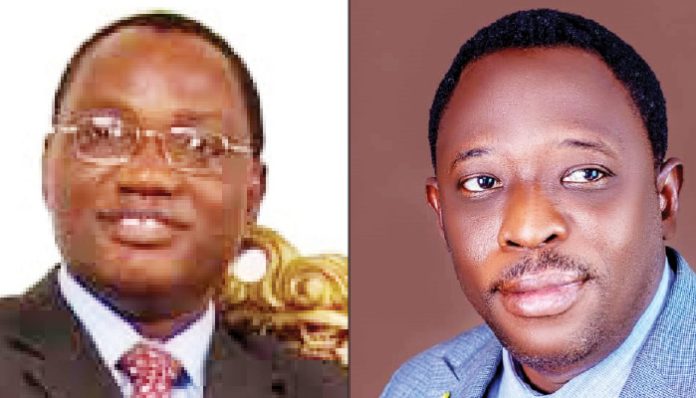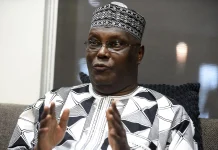

With the recent minimum wage set at N70,000, medical experts say the majority of Nigerians cannot have good healthcare, especially with the country’s high costs of drugs and medical services.
The physicians said the approved minimum wage can only take care of transportation costs of patients to the hospital but can’t foot their medical bills.
The doctors argued that with the biting economic hardship that had already plunged many Nigerians into poverty, N70,000 was grossly inadequate to provide good healthcare to the populace, particularly those with low incomes.
Recall that President Bola Tinubu approved a N70,000 minimum wage last week, with a promise to review the national minimum wage law every three years.
This approval followed a two-day strike, an initial demand for N615,000, and several negotiations between the President and the Nigeria Labour Congress.
In response to the approval, NLC’s national president, Joe Ajaero, stated that accepting the N70,000 minimum wage was an act of solidarity.
He added that the decision aimed to prevent a further hike in petrol prices and the increased hardship such an increase would cause.
Reacting to the approval in different exclusive interviews with According Healthwise, the experts maintained that the minimum wage can’t provide quality healthcare for Nigerians.
The senior health professionals said with the current exchange rates and the skyrocketing costs of essential drugs, which have increased by over 300 per cent, the minimum wage falls far short of providing the quality healthcare every Nigerian deserves.
They emphasised that without a robust health insurance system in place, reliance on out-of-pocket payments for medical services will further impoverish ordinary citizens.
The experts pointed out that individuals with limited purchasing power were forced to prioritise basic needs such as food over healthcare, putting their health at risk.
Available data from the World Health Organisation estimates that globally, more than 150 million people face catastrophic health expenditure, and over 100 million are pushed into poverty due to out-of-pocket healthcare costs.
The WHO defines Out-of-Pocket spending as any direct outlay by households, including gratuities and in-kind payments, to health practitioners and suppliers of pharmaceuticals, therapeutic appliances, and other goods and services whose primary intent is to contribute to the restoration or enhancement of the health status of individuals or population groups.
They underscored the urgent need for comprehensive healthcare reform in Nigeria to address these systemic challenges and ensure equitable access to quality medical services for all citizens.
A Professor of Medicine at the Obafemi Awolowo University, Ile-Ife, Osun State, Gregory Erhabor, said, “N70,000 may only be enough for transportation to the hospital, but it definitely can’t give Nigerians good medical care and services.”
Erhabor, who is a former President of the Thoracic Society of Nigeria, noted that health comprises multiple facets, stressing that good health necessitates proper nutrition, prevention, and treatment of common infections.
“However, when you become seriously ill and require hospitalisation, the N70,000 won’t cover medical investigations. Therefore, I don’t believe that health can be encompassed within that N70,000. The cost of drugs is prohibitively high.
“When we discuss treatment, it’s not just about a single instance of care; it involves ongoing and continuous treatment.
“For example, a normal child delivery in the government hospitals now costs about N50,000. If you need a caesarean section, it can amount to N250,000. Thus saving up for a CS would take four months, assuming you don’t spend a single kobo of the minimum wage, which is unrealistic.
“A basic appendectomy costs around N150,000, not including post-surgery care and medications. Therefore, this amount is insufficient to provide any Nigerian with adequate healthcare and medical services,” he said.
Erhabor insisted that the underlying solution lies in implementing a health insurance scheme for Nigerians, saying that as inflation rises, so do healthcare costs.
He stressed that Nigeria needs to devise sustainable, long-term solutions to address these issues, insisting that money alone cannot solve all problems.
“The value of N70,000 diminishes significantly in the face of foreign currency fluctuations, especially since many essential drugs are imported. What we truly need are robust infrastructures that can effectively reduce the overall cost of delivering quality healthcare in Nigeria,” he added.
Corroborating this viewpoint, the Chief Medical Director of State Specialist Hospital, Ikole, Ekiti State, Dr Babatunde Rosiji, emphasised that the government-approved minimum wage falls short of providing Nigerians with adequate healthcare, considering the high costs of drugs and other essentials in the country.
According to Rosiji, who is also the Chairman of the South-West Chapter of the Nigerian Medical Association, after purchasing necessary medications, households are left with nothing to cover expenses like feeding, making it impossible to afford quality healthcare.
He expressed concern particularly for individuals with chronic illnesses such as diabetes and hypertension, noting that the prices of medications for these conditions are prohibitively expensive.
Rosiji said, “If you were to buy a packet of Diovan (a drug that lowers blood pressure) with the current minimum wage, you would have less than half of that amount to support yourself and your family after purchasing a 28-day supply of Diovan.
“This situation means that families may struggle to send their children to school, pay rent, afford fuel for cars and generators, and manage other necessary expenses.
“The NMA supported the Nigeria Labour Congress in advocating for a minimum wage of N400,000. This figure was based on the simple calculation of what a family comprising a father, mother, and three children would need to meet basic living expenses in today’s Nigeria.
“However, since the NLC and the Federal Government settled on N70,000, I wouldn’t dismiss it outright. It represents more than double the previous wage agreement.
“While it may not fully meet the NMA’s original recommendation, it does provide a basis for improvement and ongoing dialogue but falls significantly short of meeting current economic realities.”
He pointed out that once a family purchases a bag of rice, the remaining funds would hardly suffice for any other necessities, as the cost of a bag of rice alone exceeds the minimum wage.
“While we acknowledge the president’s efforts, this increment should mark the beginning of addressing the plight of the Nigerian masses.
“Beyond addressing the minimum wage, we must tackle the issue of foreign exchange, as it significantly inflates the costs of drugs and other medical supplies in the country, making healthcare increasingly unaffordable for ordinary Nigerians,” Rosiji added.
Join Television Nigerian Whatsapp Now
Join Television Nigerian Facebook Now
Join Television Nigerian Twitter Now
Join Television Nigerian YouTUbe Now





